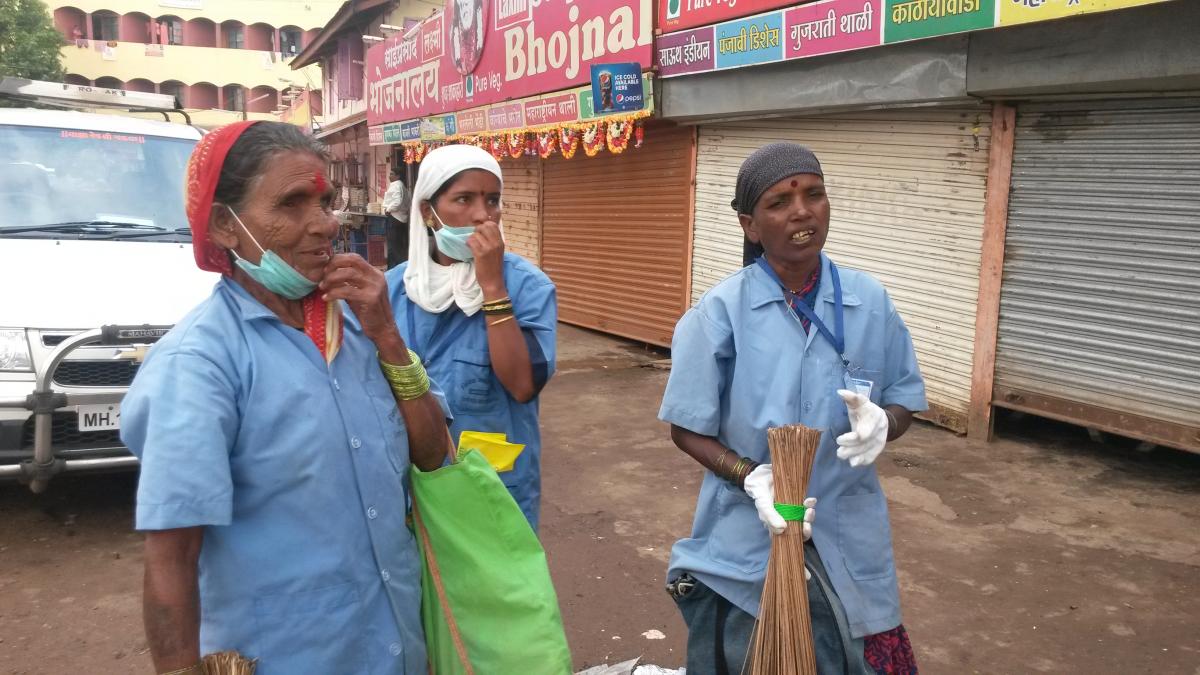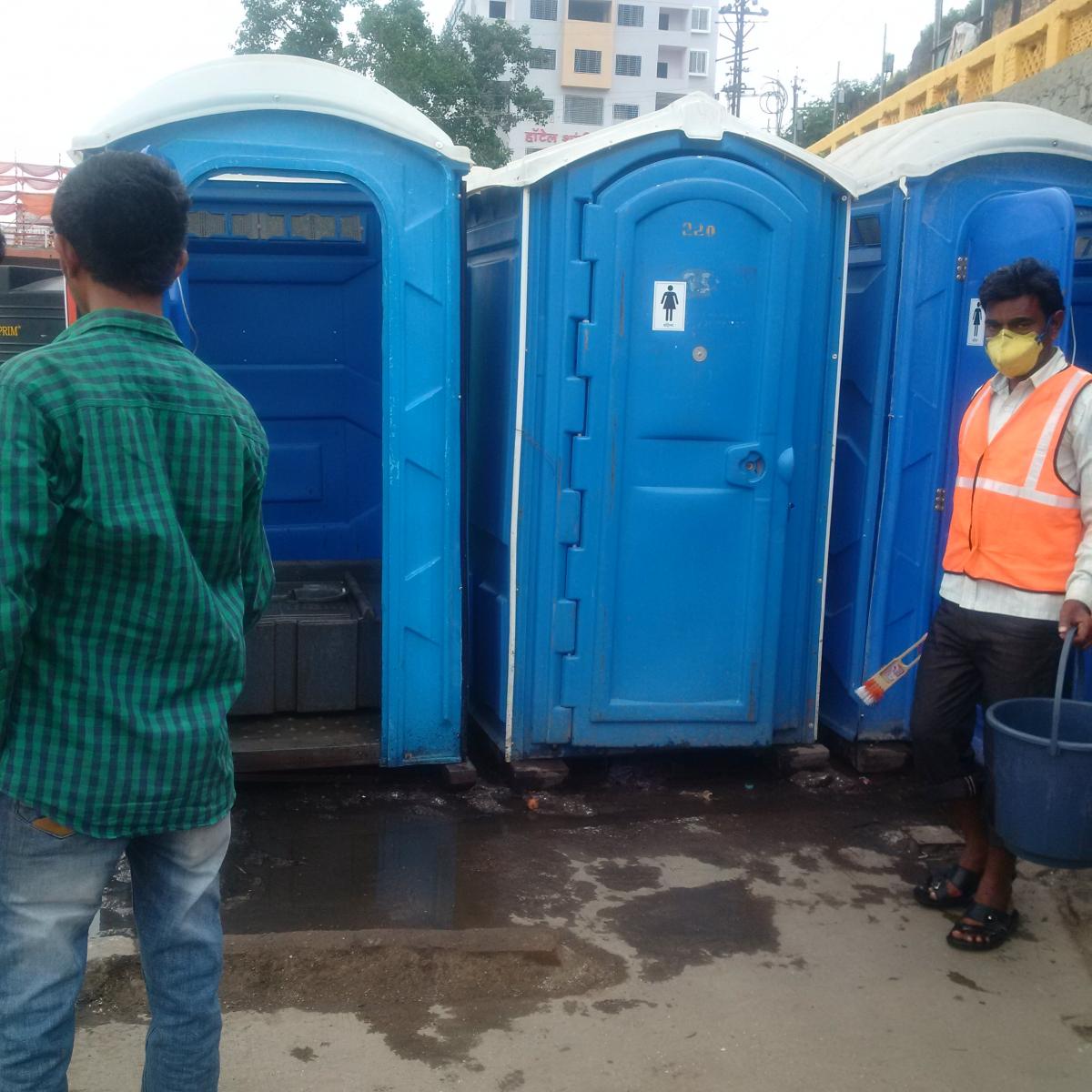
On 30 June 2020, WaterAid India and the Urban Management Centre held a webinar on the health, safety and livelihood challenges sanitation workers face in India during the COVID-19 pandemic.
Published on: 22/09/2020
This blog was co-authored by Ruchika Shiva and Shiny Saha
The Corona pandemic has reiterated the importance of WASH in overall wellbeing. The multitude of discussions organised since the onset of the pandemic have not only spelt out the preventive power of WASH in curtailing the spread of infectious diseases (such as COVID-19) but also placed it at the centre of broader development issues. The pandemic has created the opportunity for the WASH sector to actively engage in topics of basic human rights and labour rights. Particularly referring to the need to focus on the health, safety and livelihoods of sanitation workers.
Sanitation workers are a key part of the WASH system. COVID-19 has highlighted the critical role sanitation workers play in maintaining overall hygiene – collection, handling and/or disposal of solid and liquid waste (including faecal waste), cleaning of streets and drains. They are at the frontline of providing essential services, yet their contribution goes unrecognised and little is done for their protection and wellbeing. They face high occupational risks and hazards, livelihoods and financial insecurity as well as being subjected to social discrimination and stigma. They are among the most vulnerable workers facing the biggest risk of contamination.

It is important to acknowledge sanitation workers as a key part of local bodies (such as Urban Local Bodies). Without sanitation workers, engaged in solid waste or faecal waste management, the public health situation in an urban settlement would be extremely poor. Sanitation workers perform the critical function of regular cleaning that is required for communities to function in a healthy manner. However, in terms of employment arrangement most (3/4th as per a study by WaterAid India and Urban Management Centre) are either contractually or informally employed. Informal employment is higher among female than male sanitation workers. Such employment arrangements have a direct bearing on the kind of benefits they receive as well as their livelihood and financial security.
A rapid assessment study reaffirmed that most sanitation workers belong to marginalised communities, such as the Scheduled Caste (more than 50%) and Other Backward Classes. Marginalised communities such as these have been historically suppressed socially and economically. Therefore, not surprisingly, the study reported that three-fourth of the sample of sanitation workers belonged to the Below Poverty Line category. The lack of job security induced by the temporary employment arrangements continue to perpetuate the cycle of exclusion and marginalisation and render such workers vulnerable.
Sanitation work is precarious work and COVID-19 has increased the health risks faced by sanitation workers, in the absence of availability of suitable Personal Protection Equipment (PPE), lack of waste segregation followed by waste producers (including the residents of the city), and continuation of manual scavenging. Being essential workers, sanitation workers have had to regularly provide their services to ensure the functioning of the city. Therefore, provision of nutritional and health support to these workers is crucial. The high occupational health hazard associated with such work makes it necessary that sanitation workers receive social security benefits such as life and health insurance, and pension. Further, the degree of social stigma associated with this work necessitates that they also receive housing support. It is often noted that while sanitation workers work hard to keep the city clean, they have to stay at the periphery, with poor services. The poor habitation conditions and hazardous occupation conditions necessitate that childcare facilities are also made available to them. It is important to note, however, that employment arrangements influence the kind of social security benefits that the workers receive.
The study further revealed that sanitation workers often did not use the PPE kit due to issues related to discomfort, fitting and grip. Therefore, it is critical that PPE gear is designed taking into consideration specific needs of the workers.
To bring about sustainable improvements in the lives of people engaged in sanitation work, it is crucial that the WASH sector partners with other sectors and puts forth a collective advocacy agenda demanding for their health, safety and livelihood protection.
Watch the webinar recording below
At IRC we have strong opinions and we value honest and frank discussion, so you won't be surprised to hear that not all the opinions on this site represent our official policy.